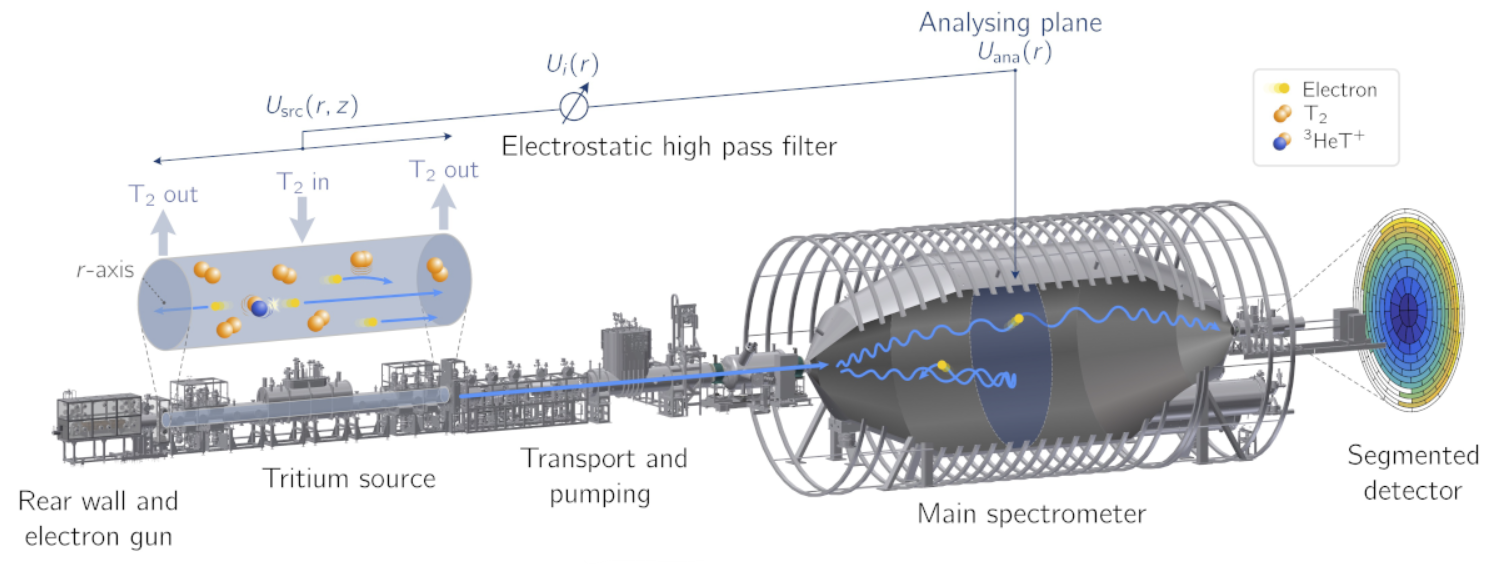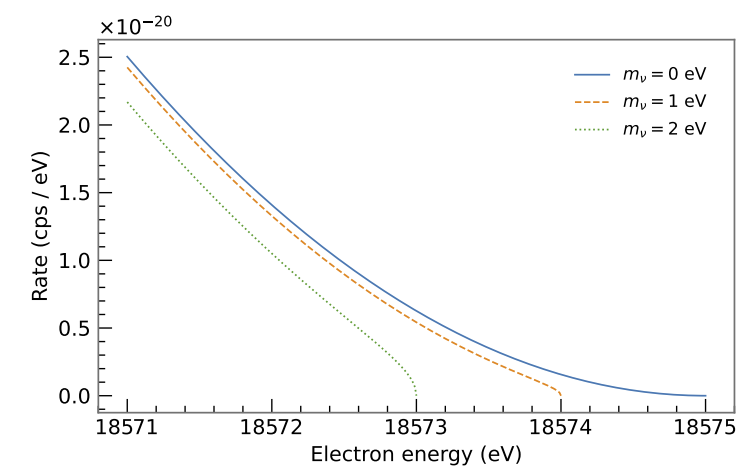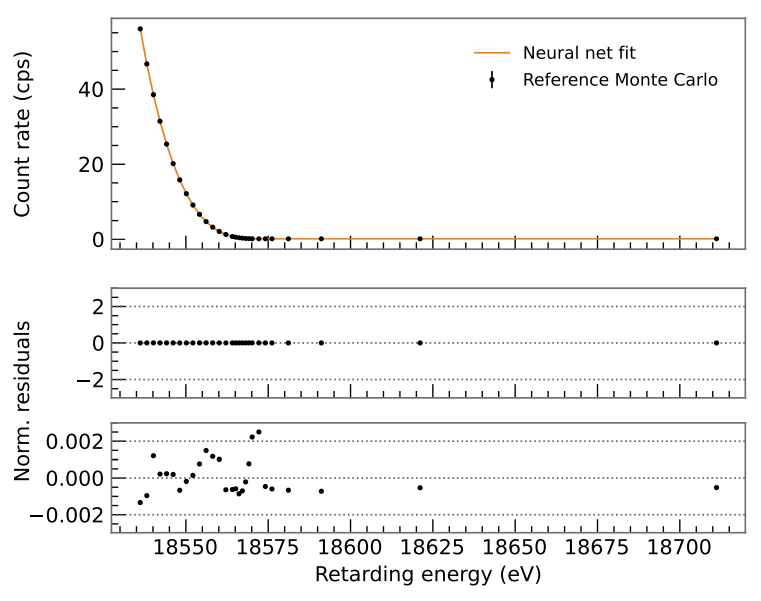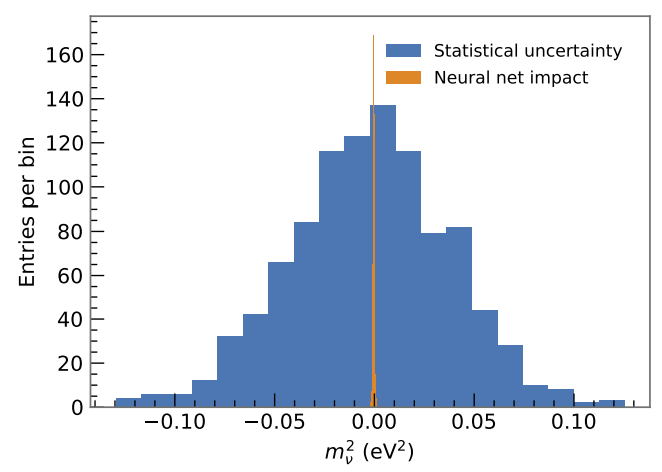Netrium
Fast and Precise Model Predictions for the KATRIN Experiment

The main goal of the Karlsruhe Tritium Neutrino (KATRIN) experiment is to measure the absolute neutrino mass scale. To do so, precise predictions of the measurement spectrum as a function of the anti-electron neutrino mass, and a multitude of parameters describing systematic uncertainties, are needed. The calculations needed to make such predictions are computationally very costly and hence prohibitive for using sophisticated statistical methods for the analysis of the neutrino mass.
By per-calculating spectra over a range of intelligently chosen points in the parameter space, and then interpolating between with a deep neural network, we manage to predict spectra with very high accuracy at a fraction of the original cost. This does not only allow to run the same analyses much faster but puts us into a position to analyze all of KATRIN data, including a full suite of systematic uncertainties, in a combined fit. Also, techniques such as fully-fledged MCMC sampling become possible.
In our recent paper that is currently under review at the European Physics Journal C (EPJ-C), we show that we can reproduce the official results of the first two KATRIN measurement campaigns with great agreement, and at a fraction of the cost.



Further Information
Collaborators: Prof. Dr. Susanne Mertens (MPP/TUM), Christian Karl (MPP)
Paper available here: https://arxiv.org/abs/2201.04523
A continuation of the project is currently funded by the Munich Data Science Institute (MDSI): https://www.mdsi.tum.de/en/mdsi/research/seed-funds-2021/netrium/